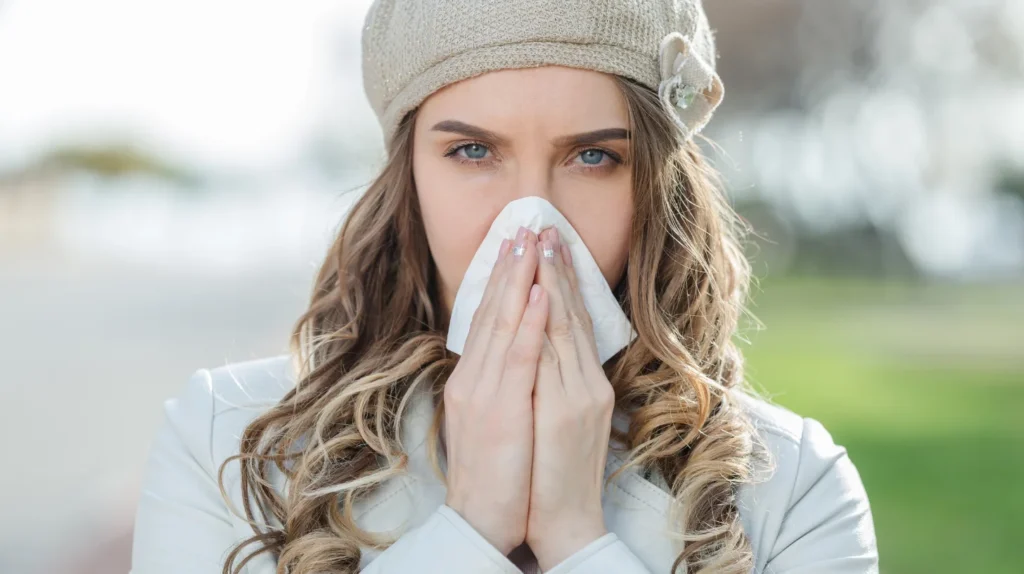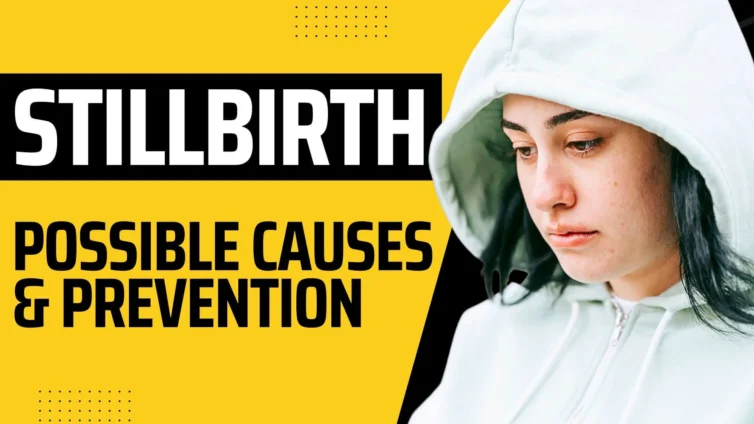
Pregnancy is a beautiful journey filled with joy and anticipation, but it can also bring unexpected challenges. One such challenge that many pregnant women face is the management of allergies. Whether it’s seasonal allergies, asthma, or food allergies, these conditions can become more pronounced during pregnancy, causing discomfort and concern.
In this article, we’ll explore the various types of allergies that can affect pregnant women, the symptoms to watch out for, and the safe ways for managing allergies during pregnancy. From understanding allergy shots during pregnancy to finding the proper allergy medications, we’ll provide you with the essential knowledge to navigate this common issue. So, if you’re suddenly allergic to your own pet or sneezing with itchy eyes, read on to discover how to ensure a healthy pregnancy while managing allergies.
Understanding the Common Allergies During Pregnancy
Pregnancy can mark the onset or worsening of allergies. Understanding the types of allergies that can affect pregnant women is crucial for ensuring a healthy pregnancy.
Recognizing Allergies During Pregnancy
Allergies are immune system reactions to substances that are usually harmless to most people. During pregnancy, the body undergoes hormonal changes that can make allergies more pronounced. Common allergies during pregnancy include allergic rhinitis, hay fever, and allergies to certain foods or pollen.
If you’re experiencing these allergies for the first time during pregnancy, it’s essential to talk to your doctor. They can help you identify the allergen and provide guidance on safe treatments. It’s also worth noting that pregnancy can make allergies worse, so even if you’ve managed allergies before, you may find them more challenging to control during this time.
The Importance of Managing Allergies for a Healthy Pregnancy
Managing allergies during pregnancy is not just about comfort; it’s about the health of both the mother and the growing baby. Uncontrolled allergies can lead to sleep disturbances, lack of concentration, and reduced quality of life. In some cases, severe allergies can even affect the baby’s growth and development.
The good news is that many allergy treatments are safe to take during pregnancy. From nasal sprays to antihistamines, there are options available to help you manage your symptoms. However, it’s essential to consult with your doctor before taking any medication during pregnancy, as not all allergy medications are considered safe.
If you’re suddenly allergic to your own pet or experiencing seasonal allergy symptoms, don’t panic. With proper care and guidance from your healthcare team, you can manage allergies effectively and enjoy a healthy pregnancy.
For more tips on a healthy pregnancy lifestyle, check out our Pregnancy Lifestyle Guide.
Symptoms of Allergies During Pregnancy
Recognizing the symptoms of allergies during pregnancy is the first step toward effective management. Allergy symptoms tend to worsen during pregnancy, and understanding what to look for can help you take timely action.
Recognizing Allergy Symptoms
Common allergy symptoms during pregnancy include sneezing, congestion, itchy eyes, and sometimes even asthma. If you’re experiencing symptoms for the first time, it’s crucial to consult with your doctor. They can help you identify the cause and recommend safe treatments. For example, saline solutions and certain nasal sprays are safe to use during pregnancy and can help relieve symptoms.
For more information on managing illness during pregnancy, you can visit our guide to Managing Illness During Pregnancy.
Differentiating Between Allergies and Other Pregnancy-Related Symptoms
Pregnancy brings about various changes in the body, and some symptoms may mimic those of allergies. For example, pregnancy rhinitis is a condition that causes nasal congestion but is not related to allergies. So it’s essential to tell the difference between allergies and a bad case of pregnancy congestion. Understanding the difference between allergies and other pregnancy-related symptoms is vital for proper treatment.
Rhinitis in Pregnancy: Causes and Solutions

Rhinitis, or inflammation of the nasal passages, is a common issue during pregnancy. It can lead to symptoms like a stuffy nose and sneezing. Let’s explore the causes and solutions for rhinitis during pregnancy.
Understanding Rhinitis and Its Symptoms
Rhinitis can be particularly bothersome during pregnancy, leading to discomfort and sleep disturbances. The symptoms may include:
- Stuffy Nose: Nasal congestion is a common sign of rhinitis.
- Sneezing: Frequent sneezing can accompany a stuffy nose.
- Itchy Eyes: Sometimes, rhinitis can also cause itchy eyes.
Understanding the difference between allergies and a bad case of pregnancy congestion can be tricky. If you’re experiencing these symptoms for the first time during pregnancy, it’s essential to talk to your doctor to determine the cause.
Treatment Options, Including Nasal Sprays
Managing rhinitis during pregnancy requires a careful selection of treatments. Here’s what you can do:
- Use Saline Solutions: Saline nasal sprays are considered safe during pregnancy and can help relieve congestion.
- Avoid Certain Decongestants: Some over-the-counter decongestants are not recommended during pregnancy. Always consult your doctor before taking any medication.
- Consider Allergy Medications: If rhinitis is due to allergies, specific allergy medications considered safe during pregnancy might be prescribed.
Tips to Relieve Nighttime Symptoms
Nighttime symptoms can disrupt sleep, but there are ways to alleviate them:
- Use a Humidifier: Keeping the air moist can help relieve nighttime symptoms.
- Sleep with Extra Pillows: Elevating your head with extra pillows can reduce congestion and help you breathe easier at night.
For more tips on better sleep during pregnancy, check out our guide to Better Sleep During Pregnancy.
Managing Seasonal Allergies and Hay Fever
Seasonal allergies often referred to as hay fever, can be particularly bothersome during pregnancy. The onset of spring or fall might bring about symptoms that need careful management to ensure comfort and well-being.
Prevention and Treatment Options
Preventing seasonal allergies starts with understanding what triggers them. Common triggers include pollen, dust, and certain plants. Here’s how you can manage these allergies:
- Stay Indoors During Peak Pollen Times: If pollen is a trigger, try to stay indoors during peak pollen times, usually early morning and late afternoon.
- Use Air Purifiers: Air purifiers can help filter out allergens and provide relief from symptoms.
- Wash Hands and Change Clothes After Being Outdoors: This helps remove any pollen that may have settled on you.
- Consult Your Doctor for Safe Medications: Antihistamines and nasal sprays considered safe during pregnancy can be prescribed by your doctor.
For more insights on managing seasonal allergies, you can refer to our guide to Avoiding Infections During Pregnancy.
Safe Use of Nasal Sprays and Antihistamines During Pregnancy
Not all allergy medications are safe to take while pregnant. However, some nasal sprays and antihistamines are considered safe for pregnant women. Nasal sprays containing saline are generally safe and can help relieve congestion. Some antihistamines are also considered safe during pregnancy. Always consult with your doctor before using any over-the-counter medications.
Remember, managing seasonal allergies is not just about medication; lifestyle changes and avoiding allergens play a crucial role. For more tips on a healthy pregnancy, check out our Essential Roadmap to a Healthy Pregnancy.
Asthma During Pregnancy: What You Need to Know

Asthma is a chronic condition that can become more complex during pregnancy. Managing asthma symptoms effectively is vital for the health of both the mother and the baby.
Managing Asthma Symptoms
If you have asthma, pregnancy may make your symptoms worse. Regular monitoring and proper medication are essential. Here’s what you need to know:
- Regular Check-ups: Regular visits to your doctor will help monitor your asthma and make necessary adjustments to your treatment plan.
- Avoid Triggers: Identifying and avoiding asthma triggers, such as smoke during pregnancy, can help manage symptoms.
- Use Prescribed Medications: Your doctor will prescribe asthma medications that are safe for pregnant women. Following the prescribed plan is crucial for controlling symptoms.
For women with asthma, understanding how to manage the condition during pregnancy is vital.
Medications Considered Safe During Pregnancy
Managing asthma during pregnancy often requires medication. The good news is that many asthma medications are safe for pregnant women. Your doctor will work with you to find the best treatment plan, considering your specific needs and the safety of your growing baby.
Inhalers and certain other asthma medications are generally considered safe during pregnancy. If asthma is severe, uncontrolled asthma can lead to complications for both mother and baby. Proper management, regular check-ups, and adherence to prescribed treatments can ensure a healthy pregnancy.
Allergy Shots During Pregnancy: Are They Safe?
Allergy shots, also known as immunotherapy, are a common treatment for allergies. But are they safe during pregnancy? Let’s delve into this subject to provide clarity for expectant mothers.
Understanding Allergy Shots and Their Safety
Allergy shots work by gradually exposing the body to small amounts of allergens, helping it build immunity. This treatment can be highly effective for managing allergies, but its use during pregnancy requires careful consideration.
- Continuing Allergy Shots: If you were already receiving allergy shots before pregnancy, it’s generally considered safe to continue them. However, it’s essential to consult with your doctor to ensure that the treatment aligns with your specific pregnancy needs.
- Starting Allergy Shots During Pregnancy: Starting allergy shots for the first time during pregnancy isn’t typically recommended. Pregnancy can make allergies get worse, and introducing new allergens might lead to unexpected reactions.
For more information on treatments during pregnancy, you can refer to our guide to Medicines When Pregnant.
When to Get Allergy Shots During Pregnancy
Timing is crucial when it comes to allergy shots during pregnancy. If you’re considering continuing or starting allergy shots, here’s what you need to know:
- Consult Your Doctor: Your doctor will assess your specific situation and guide you on the best course of action.
- Monitor Reactions: Any allergic reactions should be closely monitored, and any changes in symptoms may require adjustments to the treatment plan.
Remember, every pregnancy is unique, and what might be safe for one person may not be for another. Always follow your doctor’s advice.
Food Allergies and Pregnancy

Food allergies can be a concern for many pregnant women. Recognizing and managing these allergies is vital for a healthy pregnancy.
Recognizing and Avoiding Common Food Allergens
Common food allergens include nuts, shellfish, dairy, and eggs. If you’re allergic to any of these, it’s essential to recognize and avoid them during pregnancy. Here’s how:
- Read Labels Carefully: Always check food labels to ensure they don’t contain allergens.
- Prepare Meals at Home: Cooking at home allows you to control the ingredients and avoid allergens.
- Inform Friends and Family: Let friends know of your allergy before you drop by for a meal, so they can accommodate your needs.
For more tips on a healthy pregnancy diet, you can explore our guide to Creating a Healthy Pregnancy Diet Chart.
Safe Dietary Practices for Pregnant Women
Safe dietary practices go beyond avoiding allergens. Here are some general tips for pregnant women:
- Eat a Balanced Diet: Include a variety of nutrients to support your baby’s growth.
- Avoid Raw or Undercooked Foods: These can lead to foodborne illnesses, which are particularly risky during pregnancy.
- Stay Hydrated: Drink plenty of water to support your increased blood volume during pregnancy.
Food allergies don’t have to be a barrier to enjoying nutritious and delicious meals during pregnancy. With awareness, caution, and consultation with your doctor, you can navigate food allergies safely.
Key Takeaways
1. Understanding and Managing Allergies: Recognizing and treating common allergies, including seasonal allergies and hay fever, is vital during pregnancy.
2. Asthma and Allergy Shots Safety: Proper management of asthma and understanding the safety of allergy shots ensures the well-being of both mother and baby.
3. Food Allergies and Rhinitis Solutions: Awareness of food allergens and rhinitis treatments helps in adopting safe dietary practices and alleviating discomfort.
4. Dealing with Congestion and Avoiding Triggers: Utilizing safe solutions for congestion and sneezing, and identifying and avoiding allergy triggers, contributes to a healthy pregnancy.
The Bottom Line
Managing allergies during pregnancy doesn’t have to be a daunting task. With the right knowledge and guidance, you can navigate through this special time with comfort and ease. From understanding rhinitis to choosing safe decongestants and avoiding allergy triggers, the steps to a healthy pregnancy are within reach. Always remember to consult your doctor for personalized recommendations, and don’t hesitate to explore resources that cater to your unique needs.
Your pregnancy is a beautiful journey, and understanding how to manage allergies during this time can make it even more enjoyable. Embrace the changes, be mindful of your body’s needs, and take the essential steps to ensure a healthy and happy pregnancy.
Frequently Asked Questions (FAQs)
What are common allergy symptoms during pregnancy?
Common allergy symptoms during pregnancy include sneezing, itchy eyes, nasal congestion, and rhinitis. Recognizing these symptoms helps in treating allergies effectively.
Can I get allergy shots during pregnancy?
Yes, you can get allergy shots during pregnancy, but it’s essential to consult with your doctor. They will assess your specific situation and ensure the treatment is safe.
How can I manage allergies and asthma during pregnancy?
Managing allergies and asthma during pregnancy involves understanding your triggers, using safe allergy medications, and following your doctor’s advice. Preventive measures and proper treatment are key.
Is it safe to use nasal spray for allergies while pregnant?
Only certain nasal sprays are considered safe for use during pregnancy to treat allergy symptoms. However, it’s best to consult with your doctor to choose the right one.
What should I do if I experience allergies for the first time during pregnancy?
If you experience allergies for the first time during pregnancy, consult your doctor. They can diagnose the type of allergy and prescribe appropriate treatments that are safe in pregnancy.
Can seasonal allergies get worse during pregnancy?
Yes, seasonal allergies can get worse during pregnancy. Hormonal changes may exacerbate symptoms, so it’s essential to manage allergies with safe treatments and avoid known triggers.
How can I treat a cold or an allergy in the first trimester?
Treating a cold or an allergy in the first trimester requires a careful selection of allergy medicine and treatments. Consult your doctor to ensure the medications are safe for you and your growing baby.





